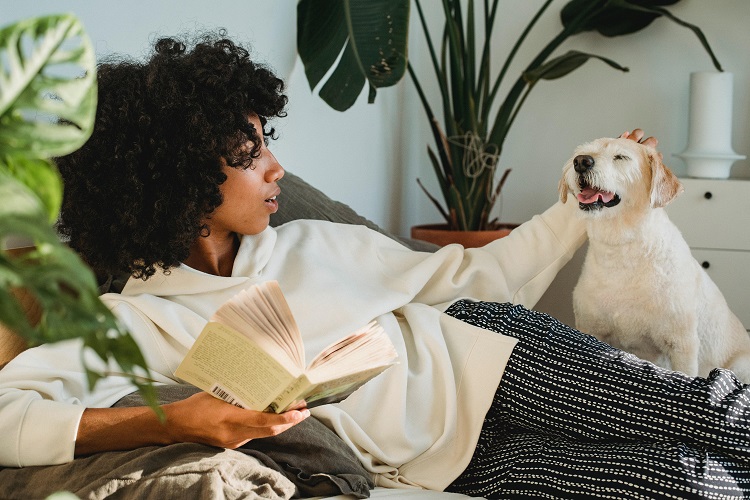House Plants Safe For Dogs

If you are a dog lover and a plant lover, you will likely know that some plants can be harmful to pets. However, fear not, there is no need for you to give up plants altogether. Many plants are safe for dogs – here are some of them.
True palms
Several varieties of palms are pet-friendly. These include the ponytail palm (Beaucarnea recurvata), parlour palm (Chamaedorea elegans), and date palm (Phoenix dactylifera).
Ponytail palms are low-maintenance plants which require dry soil, so they do not need a lot of water. They do not need to be fertilised often – only two or three times a year!
Parlour palms should be kept out of direct sunlight. They typically only need a few hours of indirect sunlight per day. Keep the soil evenly moist for the best results.
Date palms should also be placed in an area which gets indirect sunlight. However, they prefer slightly drier soil so be careful not to overwater them.
Sago plants (Cyccas revoluta) are commonly mistaken for true palms, but they are not. They should be avoided as they are toxic for pets.
Bamboo
Golden or fishpole bamboo (Phyllostachys aurea) is safe for dogs. However, you should steer clear of heavenly or sacred bamboo, and lucky bamboo, as these varieties can be toxic to pets.
For the best results, keep bamboo in full sun or partial shade, and ensure the soil remains moist but well-drained.
African violets
Add a bit of colour with the flowering African violets (Streptocarpus ionanthus). They produce beautiful purple flowers and, most importantly, they are pet-safe.
African violets thrive in warmer conditions and indirect sunlight. They can bloom year-round if you fertilise them regularly and ensure you water underneath the leaves. Keep away from draughty areas such as near windows and vents.
Spider plants
Spider plants (Chlorophytum comosum) are popular houseplants that are low maintenance and non-toxic to dogs. They are resilient, easy to grow indoors, and also make great air purifiers, helping to get rid of toxins in your home.
Keep spider plants out of direct sunlight to prevent their leaves from becoming scorched. They will grow best in low light or areas with indirect bright light.
Prayer plants
The prayer plant (Calathea insignis) is also safe for dogs and has eye-catching leaves with a unique pattern, ideal for those who are looking for a more decorative plant.
Prayer plants typically prefer bright, indirect sunlight. For the best results, fertilise your prayer plant once a month in spring and summer and water when the top quarter of the soil is dry.
Plants that are toxic to dogs
Some of the plants you should definitely avoid having in your home if you have dogs include fiddle leaf figs (Ficus lyrata), devil’s ivy (Pothos), Swiss cheese plants (Monstera deliciosa), and snake plants (Sansevieria trifasciata).
Of course, the safest thing to do is to not have these plants in your home, but if you already have some of these plants or want to get one, then make sure they are kept out of reach from your dog, and that no leaves could fall onto the floor where your dog could get them.
If you know or suspect that your dog has come into contact with or ingested anything toxic or potentially harmful, contact your veterinarian immediately.